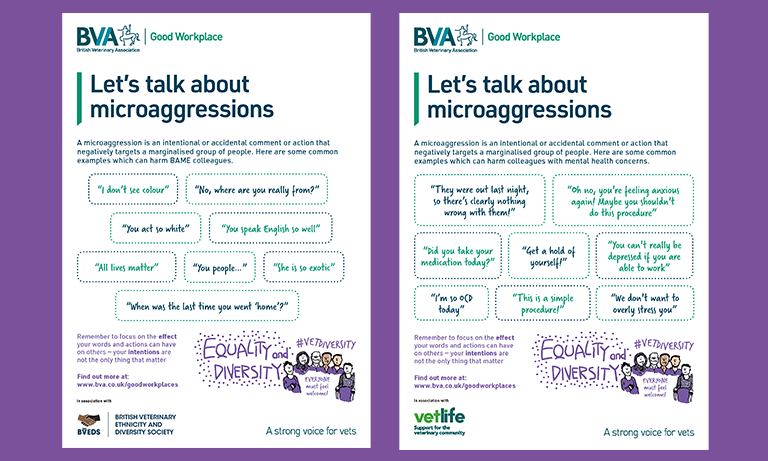
Vets must become the ‘trusted voice’ on alternative pet food: BVA launches new policy position on diet choices for cats and dogs
24-Jul-2024
Successful businesses treat employees fairly. For team members to feel respected and valued at work, it is vital that workplaces are genuinely inclusive, with no tolerance of prejudice or discrimination. Any form of discrimination is illegal, reprehensible, and has no place in society.
We know that discrimination can come from team members and the public and could be either deliberate or unintentional. Regardless of the perpetrator or intent, facing discrimination causes distress. It can also have an impact on how valued and respected team members feel, as well as how well they feel they fit into the workplace or profession.
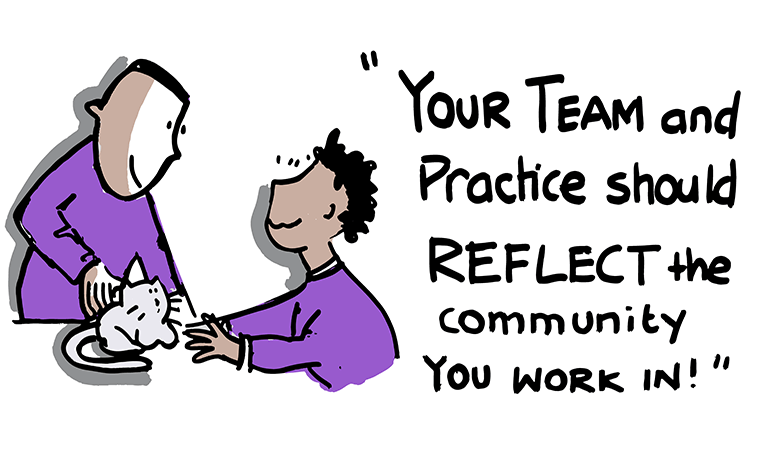
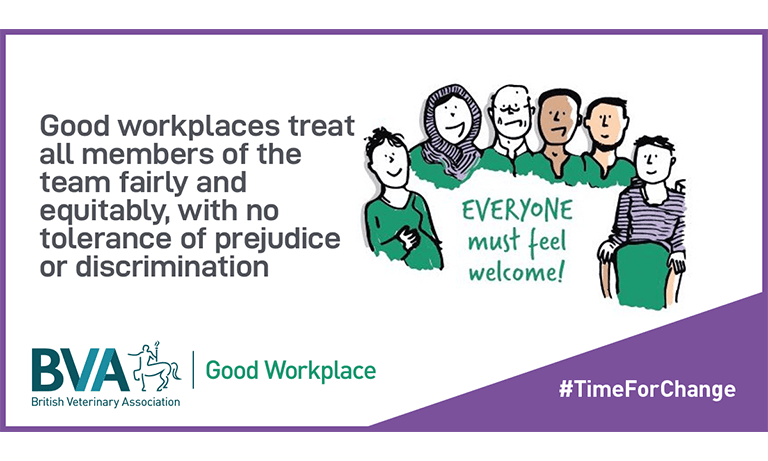
Read pages 16 to 29 in our position on good veterinary workplaces, to equip yourself with a better understanding of the issues members of the profession face, and how you can help
This session in our Good Workplaces webinar series focused on the topics of equality, diversity and inclusion, with Head of VDS Training Carolyne Crowe in conversation with BVA Senior Vice President Daniella Dos Santos, and Laura Haycock from Pearn Kandola, discussing:
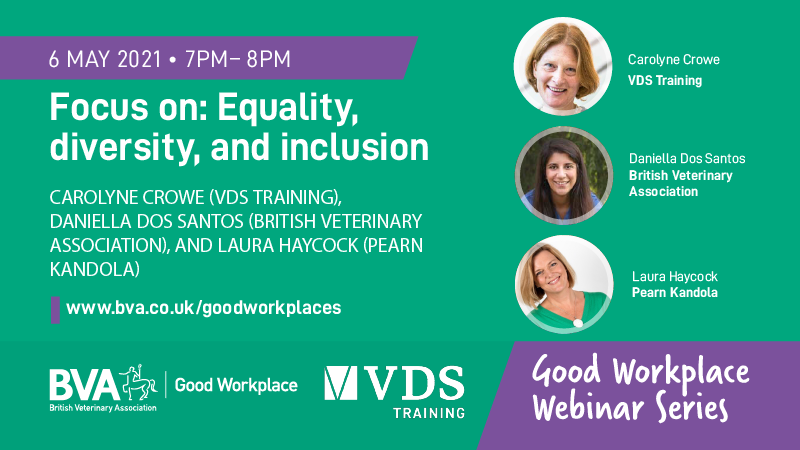
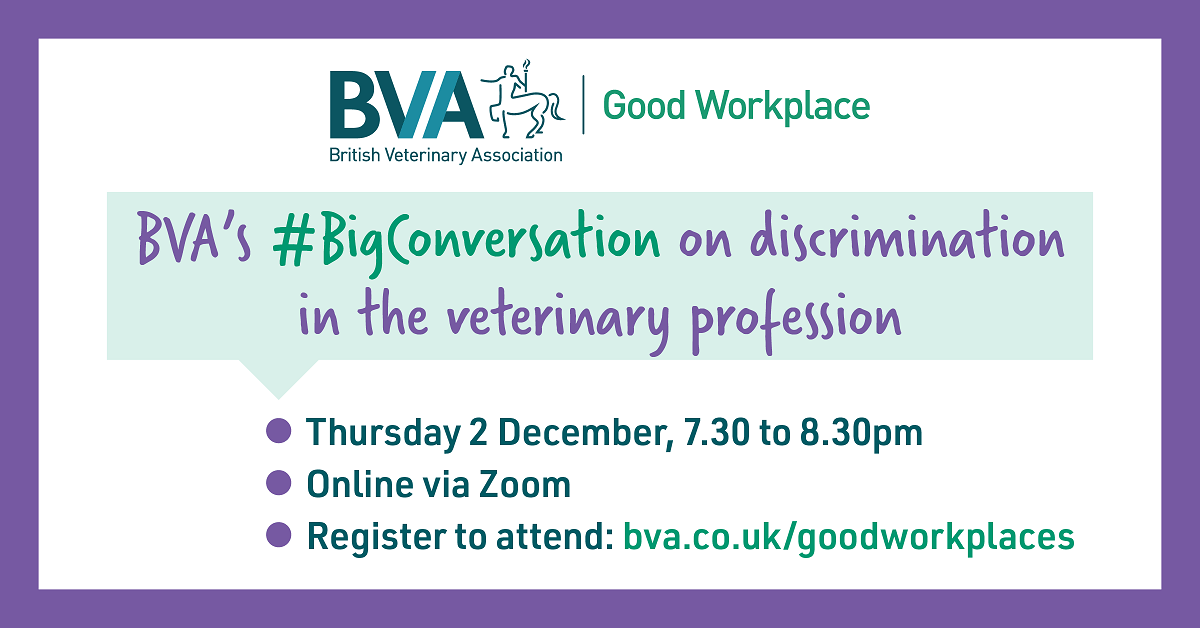
Malcolm Morley led this webinar to discuss the 2021 Voice Survey results related to discrimination in the veterinary profession, with Daniella Dos Santos, Issa Robson (BVEDs), Olivia Anderson-Nathan (BCVIS), Dan Makin (BVLGT+), and Rosie Allister (Vetlife). The session explored:
Microaggressions are comments or actions which negatively target a marginalised group of people. Start the #BigConversation about discriminatory language and behaviour by displaying our posters in your veterinary workplace. These posters cover comments related to race, gender, mental health, sexuality, and disability.
